Sri Lanka To Start Tea-For-Oil Barter With Iran Next Month

Sri Lanka is set to start bartering tea with Iran next month in lieu of $250 million owed for oil, a Sri Lankan official said on Friday.

Sri Lanka is set to start bartering tea with Iran next month in lieu of $250 million owed for oil, a Sri Lankan official said on Friday.
In December 2021, the head of Iran’s Trade Promotion Organization, Alireza Peyman-Pak, signed an agreement with Sri Lankan Minister of Plantation, Ramesh Pathirana, according to which Colombo would barter tea in monthly instalments of $5 million to settle a $251 million debt to Iran because it cannot transfer money to Iran due to the US sanctions on Iranian banking.
"This is very timely for us because we get access to an important market and both Iran and Sri Lanka can trade without relying on dollars," Sri Lanka's Tea Board Chairman Niraj de Mel told Reuters.
"The agreement was to send $5 million worth of tea each month for 48 months but we plan to start with about $2 million per month."
According to the agreement, Sri Lanka’s Treasury will release equivalent of $5 million in rupees every month to the Sri Lanka Tea Board - a state-run industry regulator– that will then pay individual exporters in rupees at the central bank’s exchange rate.
“This scheme will not violate any UN or US sanctions since tea has been categorized as a food item on humanitarian grounds while none of the blacklisted Iranian banks will be involved in the equation,” read a statement by Sri Lanka’s plantation ministry.
Iran is among the top 10 importers of Ceylon Tea for the past several decades although purchases have declined following US sanctions.
Iran has been trying to increase barter deals amid sanctions. “We have the lower hand, and we have to make concessions, which means we have to accept any goods at any price”, Hamidreza Salehi, a member of Tehran’s Chamber of Commerce, has said.
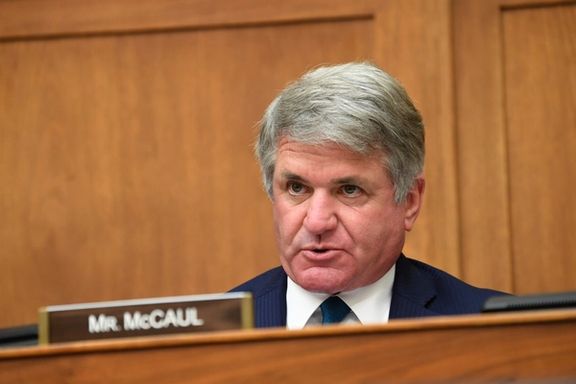
As many US lawmakers pressure the Biden administration on Iran, more than 200 prominent Iranian Americans have asked Congress to subpoena President Biden's envoy.
In a letter to Rep. Michael McCaul, Chairman of the House Foreign Affairs Committee, the Iranian American activists asked him to subpoena US special envoy for Iran Robert Malley over his history of confidential engagements with high-ranking Islamic Republic regime officials with ill will towards the US, as well as his intent on pursuing a policy of appeasement in favor of the biggest state sponsor of terrorism.
“Mr. Malley’s conduct is not acceptable to us as Americans of Iranian origin, especially while we witness people inside Iran being slaughtered by the regime in the streets and tortured in prisons by the Islamic Revolutionary Guard Corps, a US-designated terrorist organization,” reads the letter.
Imploring McCaul to subpoena Malley to provide a rundown of what has been agreed upon with the regime, they added, “We consider access to and knowledge of this information to be unalienable right of the American people and our community.”
Some prominent signatories were; Reza Behrouz, physician and Professor at the University of Texas ; Yass Alizadeh, Assistant Professor of Persian language and literature at New York University; Atlanta-based attorney Sasan Nematbakhsh; DC-based legal scholar Shima Bozorgi; Amin Sophiamehr, philosophy instructor from Indiana University and Sara Eshaghi of the California-based group, “Action for Iran.”
The letter came as House Republicans are laying the groundwork to subpoena top Biden administration officials over clandestine efforts to secure a deal with Iran that would free up billions of dollars for the regime.
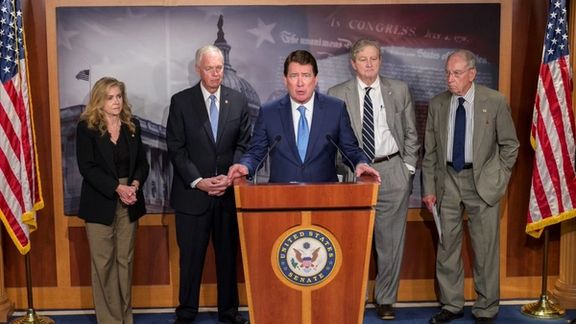
Reports on a possible unwritten deal between Washington and the Iranian regime has led to multiple Congressional initiatives to ensure legislative oversight.
On Thursday 33 US senators joined to introduce the Iran Sanctions Relief Review Act (ISRRA – S.488) to “make it abundantly clear to the Biden Administration that any agreement made with Iran that involves sanctions relief must be submitted for Congressional review,” said Senator Bill Hagerty (R-Tenn) who leads the effort.
When in 2015 the JCPOA Iran nuclear deal with Iran was concluded, the Obama administration seeing serious opposition in Congress decided not to make it a treaty requiring Senate approval. As a tactic to reduce opposition, Obama agreed to the Iran Nuclear Agreement Review ACT (INARA) to allow Congress to oversee future dealings with Tehran, especially any reduction in sanctions.
As all signs point to indirect and even direct talks with the Islamic Republic emerge, many in Congress fear that the Biden administration is moving toward releasing Iran’s frozen funds in countries such as Iraq and South Korea, and possibly even sanctions in return for an Iranian pledge not to enrich uranium beyond 60 percent. Many lawmakers regard such a deal as harmful because Iran has already stockpiled enough enriched uranium to be able to quickly produce weapons-grade material if it decides to produce for nuclear weapons.
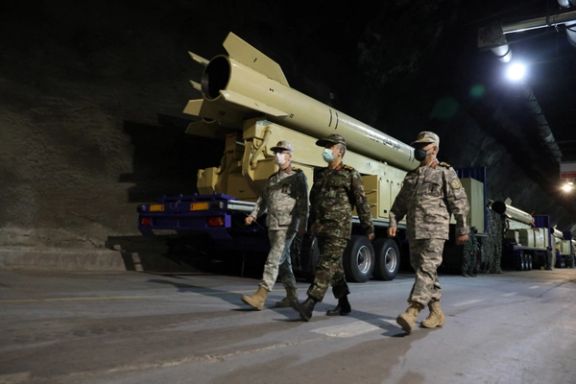
The Washington Free Beacon also reported on Thursday that Republicans in the House of Representatives are preparing to subpoena top Biden administration officials over the secret talks with Iran. The effort is led by the Republican Study Committee, the largest conservative caucus in the US Congress. The group intends to subpoena Iran envoy Robert Malley and White House national security aide Brett McGurk, both seen as key players in ongoing secret talks with the Islamic Republic.
At same time, more than 200 prominent Iranian Americans have written to Rep. Michael McCaul, Chairman of the House Foreign Affairs Committee asking him to subpoena US special envoy for Iran Robert Malley, who is deeply distrusted by Iranian activists and others opposed to the Iranian regime.
“We therefore implore you to subpoena Mr. Malley to provide, under oath and in a public hearing, a rundown of what has been agreed upon with the regime,” the letter asked Rep. McCaul, and added, “We consider access to and knowledge of this information to be unalienable right of the American people and our community, as our friends and families inside Iran suffer under the tyranny and brutality of the Islamic Republic regime.”
Some prominent signatories were; Reza Behrouz, physician and Professor at the University of Texas ; Yass Alizadeh, Assistant Professor of Persian language and literature at New York University; Atlanta-based attorney Sasan Nematbakhsh; DC-based legal scholar Shima Bozorgi; Amin Sophiamehr, philosophy instructor from Indiana University and Sara Eshaghi of the California-based group, “Action for Iran.”
This week, a bipartisan group of 26 senators sent a letter to the White House expressing concern over reports that the administration is trying to reach a limited deal with Iran without Congressional oversight.
“It is imperative today that we strengthen our efforts to deter Iran from achieving nuclear weapons capability. We must make Iran understand, in no uncertain terms, that further advances in its nuclear program will be met with unified international action,” the 26 senators wrote to Biden.
“It is crucial for your administration to remain aligned with Congressional efforts related to Iran’s nuclear program and not agree to a pact that fails to achieve our nation’s critical interests,” the letter said.

A member of the Iranian parliament criticized the high price of Chinese cars in the country saying Iranians pay 10 times more than its value.
Lotfollah Siahkali said: “The real price of a Chinese car is 6,000 dollars, but we sell for 60,000. Which governance rule does this follow? People are aware of the difference in car prices inside Iran and abroad. Why are we like this?"
This is not the first time the issue of importing cars or car parts from China has drawn criticism.
Last year, Mehdi Dadfar, the Secretary of the Car Importers Association, criticized the ban on car imports and market saturation by Chinese cars and parts.
“They did their best to prevent the import of famous brands and turned the country into one of the provinces of China,” he said.
It seems that China does not want to manufacture cars in Iran and prefers to export cars or parts.
For years critics and politicians have criticized the government-controlled auto industry and have referred to a “mafia” running the money-losing and inefficient sector.
Iran’s two main carmakers – Saipa and Iran Khodro – can only produce 1,400,000 units of light and heavy vehicles, mostly sub-standard older foreign models.
China has been the world’s largest car maker since 2008, with its output since 2009 higher than the US, European Union, and Japan combined. But the quality of Chinese cars is considered poor, with focus on low prices and high production numbers.

As more signs show renewed contacts between Iran and the West, a bipartisan group of 26 US senators have asked President Joe Biden not to rush into a bad agreement.
The senators expressed their concern over reports that the administration is trying to reach a limited nuclear deal with Iran, which it apparently intends to keep out of the US Congress by not signing a formal document.
“It is crucial for your administration to remain aligned with Congressional efforts related to Iran’s nuclear program and not agree to a pact that fails to achieve our nation’s critical interests,” the letter said.
The Jewish Insider reported that the bipartisan coalition was formed and the text drafted before recent revelations of talks with Iran, but it now has assumed new significance.
The letter was led by Sens. Kirsten Gillibrand (D-NY) and James Lankford (R-OK), but there are several Democratic senators who previously supported the 2015 JCPOA nuclear deal.
While the Biden administration has not denied regular direct and indirect contacts with Iran, diplomatic activities picked up speed this week as Iran’s foreign minister Hossein Amir-Abdollahian visited Qatar and Oman, traditional mediators between Washington and Tehran. Iran’s chief nuclear negotiator Ali Bagheri-Kani also met with the European Union’s negotiator Enrique Mora in Qatar.

“We exchanged views and discussed a range of issues including negotiations on sanctions lifting,” Bagheri-Kani tweeted after the meeting. The Iranian régime calls the negotiations talks to lift sanctions, not to a nuclear deal.
“It is imperative today that we strengthen our efforts to deter Iran from achieving nuclear weapons capability. We must make Iran understand, in no uncertain terms, that further advances in its nuclear program will be met with unified international action,” the 26 senators wrote to Biden.
US lawmakers have repeatedly complained about the Biden administration’s lax sanctions enforcement against Iran, especially with China steadily increasing imports of embargoed Iranian oil.
Since Biden’s election in 2020, Iran’s daily oil exports have jumped from 250,000 barrels per day to nearly 1.5 million, mostly going to China through illicit methods.
“Iran simply cannot be allowed to advance its nuclear program with impunity and the PRC cannot be given a pass for accelerating Iran’s destabilizing behavior. We urge you to restore this posture of deterrence and provide leadership to strengthen the resolve of the international community,” the letter said.
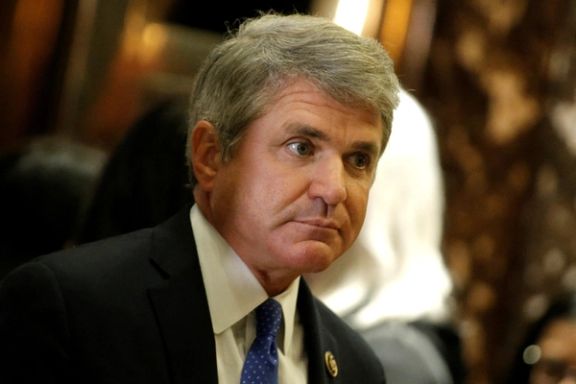
Last week House Foreign Affairs Committee Chairman Rep. Michael McCaul also sent a letter to President Joe Biden saying, “I am disturbed by recent revelations that the Administration has re-engaged in ‘proximity talks’ with the Iranian regime, and that the results of these discussions have included the apparent greenlighting of sizable payments to Iran.“
He was referring to the White House allowing Iraq to release more the $2.7 billion in Iran’s frozen funds earlier this month.
McCaul urged Biden to respect the Iran Nuclear Agreement Review Act of 2015 (INARA), which was enacted during the finalization of the Joint Comprehensive Plan of Action (JCPOA) in 2015 to allow Congress to oversee dealings with Tehran. The Obama administration decided not to make the JCPOA nuclear deal a treaty, given opposition in Congress at the time and agreed to INARA to neutralize opposition among lawmakers.
„We urge you to take meaningful steps to curb Iran’s destabilizing activities and deter the regime from pursuing this nefarious ambition any further,“ the senators told President Biden.
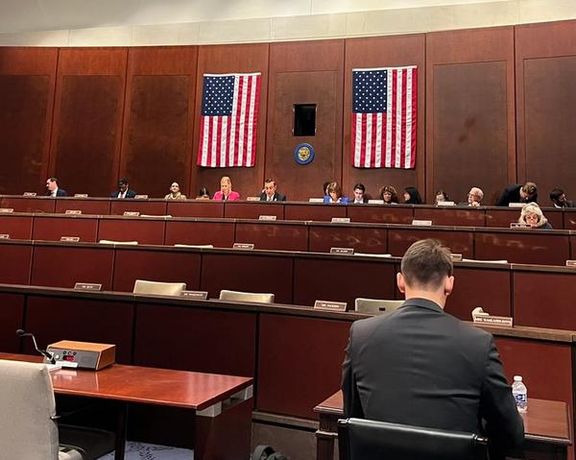
The Foreign Affairs Committee of US House of Representatives unanimously passed a resolution to make some punitive measures against Iran permanent.
The bipartisan bill called Solidifying Iran Sanctions Act of 2023, has the potential to make the 1996 sanctions against Iran – or several other measures -- permanent by deleting the 'sunset clause' in any action against the Islamic Republic, a provision that provides an expiry date for a measure.
The bill, now heading to a full vote on the House floor, strikes a section from the 1996 legislation that set 2026 as the sunset date, making permanent sanctions against the regime that are designed to slow down research and development of nuclear and biological weapons as well as preventing terrorist actions against Washington and its allies.
The 1996 law requires the imposition of sanctions with respect to Iran’s illicit weapons programs, conventional weapons and ballistic missile development, and support for terrorism, including Iran’s Revolutionary Guards Corps, read part of the bill.
"This bill takes the long overdue step of striking the arbitrary sunset from the Iran Sanctions Act, so that sanctions against the regime will only be lifted if Iran stops its threatening behavior," the House Foreign Affairs Committee chairman Rep. Michael McCaul (R-TX) said. Representatives Michelle Steel (R-CA) and Susie Lee (D-NV) helped bring political support for the Solidifying Iran Sanctions Act (SISA).
"By making these sanctions permanent, the US is signaling to Iran that we won't tolerate their continued aggression and to our allies that they must also increase their pressure on the [rogue] nation," Steel said.
"Iran’s evil regime has proven they cannot be trusted to negotiate in good faith," Steel told Fox news, adding, "Only through strength can we show the path to peace, end their brutal attacks on their own people, and prevent a nuclear Iran."
Lee said the bipartisan bill "is one step closer to becoming law and keeping Iran in check," adding, "Regardless of political party, Congress must stand firm against the Iranian regime’s brutal repression of its own people, its funding of terrorism abroad, and its reckless pursuit of nuclear weapons."
The 1996 sanctions are distinct from a series of sanctions that the Trump administration imposed in 2018 and 2019 against Iran's oil exports and international banking. However, Trump based his sanctions partly on the Iran Sanctions Act of 1996. Whether this can potentially hinder any attempts by the Biden administration to reduce the more recent sanctions in a deal with Iran is not clear.
In an interview with Iran International’s Arash Alaei, Representative Keith Self (R-TX) said, "We must deter Iran, first of all, in their nuclear program, as a nuclear war is not something you can even contemplate. And second, we must encourage the Iranian people to rise up against the regime."
Alaei says that Democrats are reluctant to comment on the measures against the Islamic Republic due to a lack of comprehensive Iran policy by the Biden administration.
Criticizing the Biden administration, Senator Kevin Cramer (R-ND) told Alaei that reports about impending deals to unfreeze the regime’s assets in Iraq or South Korea indicate that the administration is following a policy of appeasement with Iran, and “all the bad actors” like China, North Korea and Russia.
“What we shouldn’t do is weaken our position with Iran... we should we projecting strength,” he said.